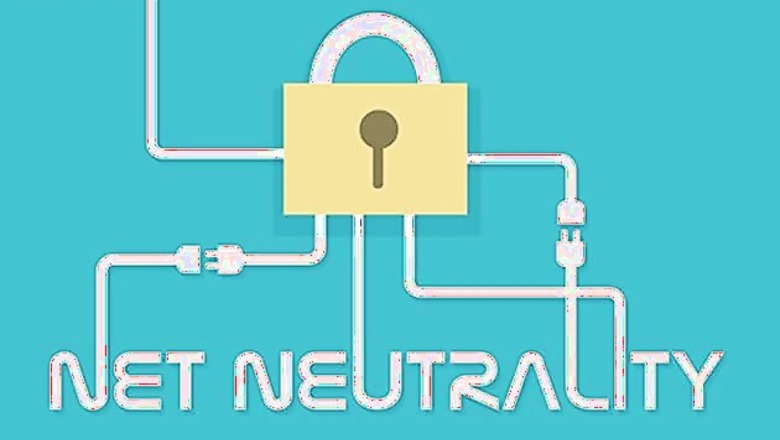
views
New Delhi: The idea of net neutrality or free and equal Internet to all has garnered wide attention from across the globe. While countries like the US, Chile, Netherlands and Brazil have already adopted net neutrality that doesn't allow discrimination of Internet content or charge users differently based on the content, site, or platform they consume, back home the Telecom Regulatory Authority of India (TRAI) has also asked for mass feedback to help formulate regulations that could change the way Indian netizens consume the Web in the near future.
While consumers appear to be majorly in favour of net neutrality, telecom companies are up in arms against the concept owing to the notion that bringing equality of Internet would cut down on their prospective revenue from the OTT services that are offered through their network, including apps such as WhatsApp, Flipkart, Skype, etc.
Below is the timeline of the landmarks in the net neutrality debate in India:
Timeline: The net neutrality debate in India
In 2006, TRAI had invited opinion regarding the regulation of net neutrality from various telecom operators.
In February 2012, Airtel chief, Sunil Bharti Mittal, suggested that services like YouTube should pay an interconnect charge to network operators. In July same year, the company reiterated that large Internet companies like Google and Facebook should share their revenue with telecom companies for allowing their services for free to the users.
In February 2014, Airtel again raised the proposal of regulating apps like WhatsApp, Skype, and Line. However, TRAI rejected the proposal.
On March 27, 2015, TRAI, published a 'Consultation Paper on Regulatory Framework for Over-the-top (OTT) services' consultation paper, which is a 117-page document describing what net neutrality in India would mean and how it'll impact the way we consume the Internet today. The deadline for comments is April 24.
On April 6, 2015, Airtel launched its open marketing platform, Airtel Zero, aimed at offering free access only to certain apps. The platform received flak for splitting the Internet into paid and free where Internet companies pay money to Airtel to allow users to get free Internet. While Airtel has widely defended its platform for being akin to the working of a toll-free number, where the caller doesn't pay but the company which uses the marketing tool does.
On April 11, 2015, India's comedy collective, AIB, posted a video on YouTube, decoding Net Neutrality and urging Indian netizens to support the cause and spread the word. The video questions the legitimacy of regulation OTT services based on the 1885 Indian Telegraph Act. It asks Indian netizens to demand for equality and freedom of using the Internet by sending an email to TRAI through www.savetheinternet.in and stop the regulation of the Internet services.
On April 14, 2015, Flipkart pulled out of Airtel Zero over row of protests against net neutrality abuse. The e-commerce platform said that it will commit to the larger interest of the public and walk away from Airtel's controversial platform. Following that, Airtel tried to clear misconceptions about its new platform, saying that it was not a tariff proposition but an open marketing platform.
On April 15, 2015, Facebook CEO Mark Zuckerberg stressed that his internet.org initiative, which has been recently launched in India, did not abuse net neutrality and was aimed at providing access to those communities and places where basic Internet is not available. The same day, online travel services provider Cleartrip pulled out of internet.org citing growing protests against the issue.
On April 17, 2015, speculations arose over Wikimedia Foundation's Wikipedia Zero allegedly violating net neutrality. Under Wikipedia Zero, users can access Wikipedia on Wikimedia's partner networks without having to pay for data usage. The service was launched in 59 countries with 67 operators that is said to allow 400 million people access to Wikipedia free of data charges.
On April 19, 2015, Airtel CEO Gopal Vittal sent emails to customers to clear the company's stand on net neutrality and defend Airtel Zero platform. The same day, Industrial body Cellular Operators Association of India (COAI) reaffirmed its support for 'net neutrality', but also made a strong pitch for 'net equality' that will enable access to Internet for a billion Indians as part of the governments digital India vision.
On April 22, 2015, Congress vice president Rahul Gandhi moved adjournment motion in Lok Sabha demanding debate on net neutrality.
TRAI will record public comments on the issue by April 24 and counter-comments by May 8. As the date draws to a close, end users are mulling what shape the final verdict will take possibly upturning the way people have known the digital form of communication.
What is your stand in this debate? Do you think net neutrality should stay as it is and allow you to continue using the Internet like you have been from the last 20 years? Or should telecom operators be given opportunities to earn more returns on the investments they have made? Let us know in the comments.




















Comments
0 comment